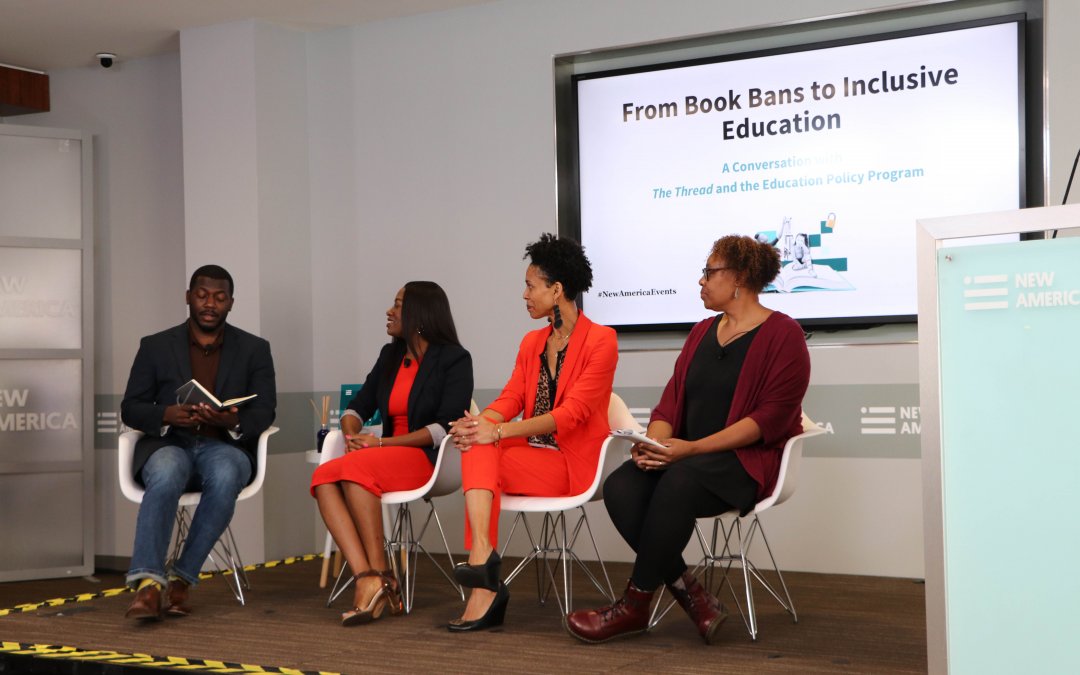WASHINGTON — Educators across the country have experienced negative impacts on their ability to teach due to the national discourse around book bans, a study published by First Book Research & Insights on Tuesday found. The study, which surveyed 1,500 educators around the nation, found that while two-thirds of respondents expressed negative impacts on their teaching lives, only one-third of respondents were subject to book bans in their districts.
“We’re at this moment where there are hard bans out there, but actually more pernicious may be the soft bans where there’s a bit of self-censorship happening,” said Lisa Guernsey, senior editor and strategic advisor at New America, a policy-driven think tank. “Educators aren’t so sure they’re going to put that book on their syllabi this year because they aren’t sure they want to get that call or deal with any anger that might emerge.”
To commemorate Banned Books Week, an annually held advocacy campaign for open accessibility to information, New America held the event ‘From Book Bans to Inclusive Education’ on Tuesday. Joined by educators, parents and authors, the event examined the state of the American education system amidst rising concerns around the banning of books in schools. As challenges to curriculum erupt across the country, panelists discussed the indirect impact felt by educators who are not subject to bans and the new burden on teachers to self-censor their material to prevent facing backlash in the future. To prevent self-censorship, the panelists said, teachers must be provided with leadership training to empower them to fight for their curriculum.
“Many times, teachers aren’t feeling confident and ask themselves, ‘Should I choose this book?’” said Professor of Education at the University of Richmond, Ma’asehyahu Isra-Ul. “A lot of times they end up second guessing themselves because we haven’t empowered them with the tools to have conversations.”
Instead of backing away from challenging conversations about race, sexuality and religion in their classrooms, Isra-Ul said he believes these conversations will help empower teachers to provide their students with the literature they need to succeed.
“A lot of times we hear, ‘You’ve gotta do what’s best for kids,’ but, when’s the last time you talked to one?” Isra-Ul said. “We’ve lost what the main thing is, which is our students. What are our students asking for?”
Natasha Tarpley, author of the best-selling picture book “I Love My Hair!”, said she believes students want to see their lives represented in the literature they consume.
“Growing up, I was really shy. Books were my way to see the world, but they were also my way to figure out who I was,” Tarpley said. “When I was reading these books, I wasn’t seeing myself, and that made it difficult.”
For Tarpley, children’s books are a place where kids can connect the pieces of who they are. She said books can become a “tool of resistance” when kids are able to create their own sources of power by exploring their interests, concerns, fears and passions. When these “tools of resistance” become topics of controversy, however, she said it places a burden on the children most vulnerable.
“There’s a lot of nurturing that needs to happen for the children whose life experiences are being banned,” Tarpley said. “These children are seen to be less important because society wants to protect the sanctity of other children’s emotions.”
Howard University PhD student Maika Moulite said book bans hurt students of color by reinforcing hierarchies in society, while representation can increase student engagement and help solve educational inequities.
“If you don’t see yourself reflected in the stories, then you are less inclined to read, and if you are less inclined to read, the opportunities you will have later on might also decline,” Moulite said. “If we want young people to get to the hallowed halls of academia, there has to be a stretching of that critical thinking muscle and a lot of that comes through reading books.”

